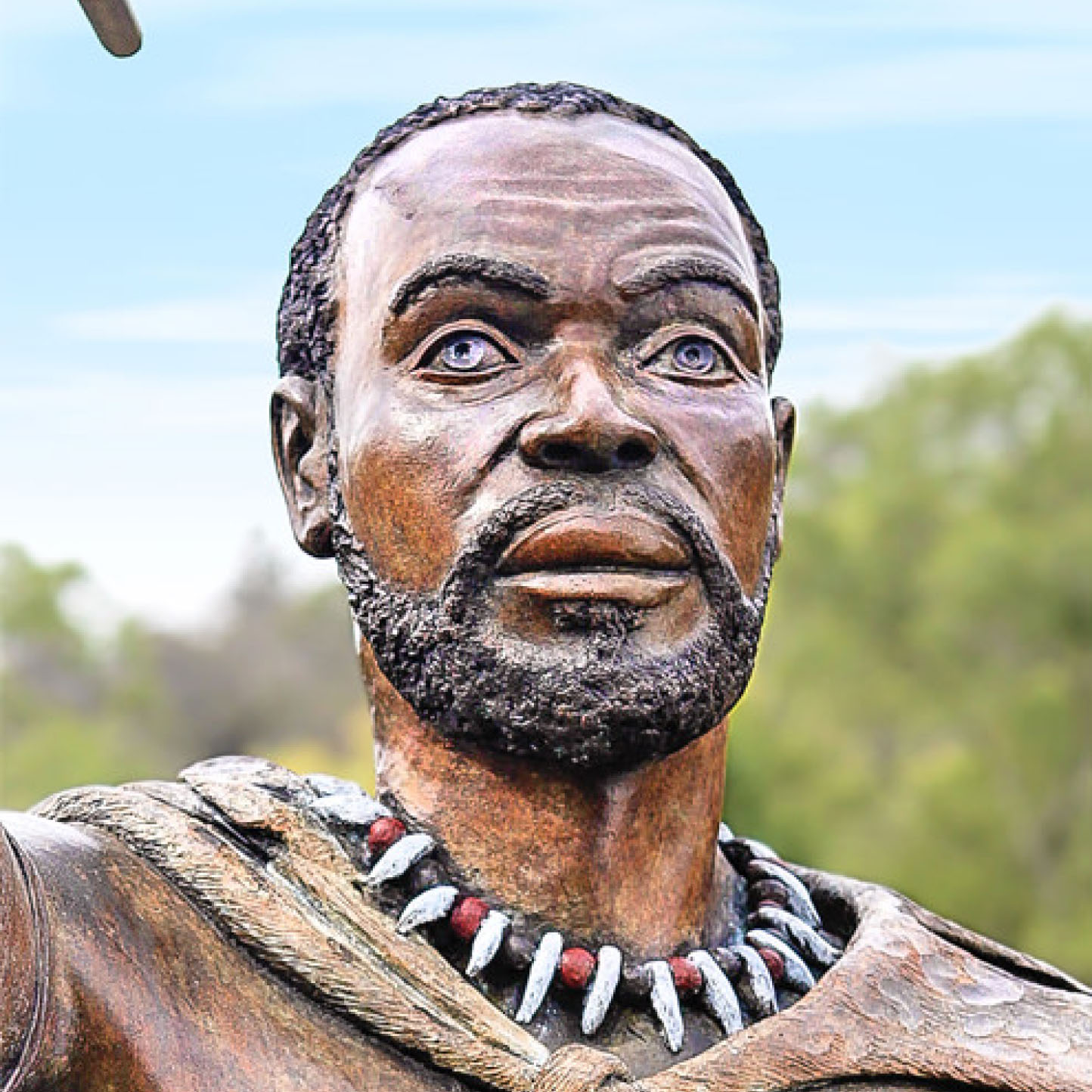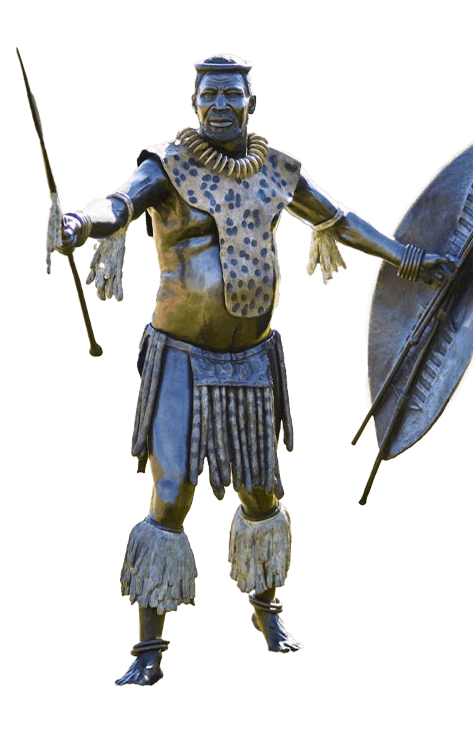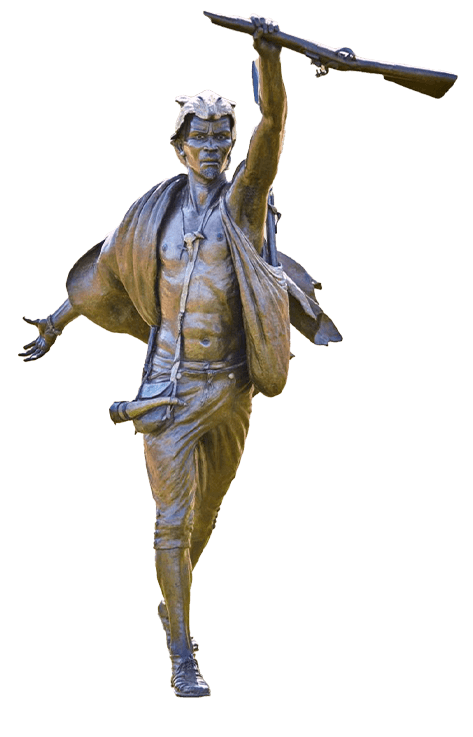


"Love your cattle; my people love me because l love my cattle. l therefore exhort you to love your cattle as I have done. Poor men will not pass by your place. They will stop with you. While you can respect the rich, you must not despise the poor."
King Hintsa
King Hintsa Ka Khawuta Of The House Of Phalo
1789 - 1835
Paramount chief of amaGcaleka, King of the Xhosa
Hintsa was born one of three sons to Khawuta kaGcaleka, the king of amaXhosa in present-day Eastern Cape.
At the end of Khawuta's reign in 1794 Hintsa was only five years old so his uncle ruled as regent until Hintsa could assume power as King in 1809.
Hintsa became the leader of a people fighting for their survival. He was faced with great civil conflict amongst amaXhosa themselves, as well as the constant threat from the European frontier farmers and settlers who had seized large portions of his kingdom and his people's cattle.
Christian missionaries, active among the western Xhosa, were challenging the traditional belief systems and practices of amaXhosa, thus weakening traditional leadership and the kingdom's solidarity. In this context of invasions, the seizure of land and cattle, King Hintsa was able to rally amaXhosa around a common cause and showed his leadership through building unity. He developed a reputation as an astute and fair king known for his wise sayings and his generosity to the poor.
In 1834 Hintsa was drawn into the Sixth Frontier War, known among the amaXhosa as Hintsa's War.
He was deliberately targeted by the British, intent on making deeper incursions into amaXhosa territory, and accused of complicity in the war of harbouring cattle allegedly stolen from settlers along the frontier. In 1835 the British crossed into Gcaleka territory, burning homesteads and seizing cattle.
Hintsa was lured into the British camp for peace negotiations where he found himself held hostage. In a dash for freedom he was pulled off his horse and brutally killed and mutilated by the British soldiers, commanded by Sir Harry Smith. One account claims that his ears and genitals were cut off and his severed head was taken to Britain as a trophy.
The incident shocked the government in London and Hintsa's death would ever after remain a cause of intense anger among amaXhosa, and the trigger of future wars.

